Greetings Friends,
I remember when I first entered a space dedicated to dharma practice, after sitting in the zendo that first night my body felt like I was home.
Which was strange because the building and atmosphere was so foreign to me, the spicey smell of incense, the monotone chanting, the long black robes that the monks wore, being told to sit still and face a wall. None of these things were reminiscent of any kind of home that I was familiar with and yet, I felt at home.
The homecoming wasn’t about the particulars of place, it was deeper then that. Somehow that environment, the silence of the meditation hall, the deeply embodied practice of meditation brought me home to myself.
I was discovering myself in a way that I had tasted in peak moments scattered throughout my childhood and adolescence—myself before the labels, names, beliefs, judgments, self-criticisms, notions of good and bad, right and wrong.
at home in myself was a spacious home of deep acceptance—and love unconditioned. everything was welcomed, nothing was amiss.
through dharma practice my sense of being at home in the mystery of who I am has become a reliable refuge. a place of return when i get tangled up from time to time in thoughts, judgments, worries, fears and self-protective strategies.
starting in the beginning of 2025, i have been giving talks on the heart of great perfect wisdom sutra. this teaching claims to offer a practice of liberation from suffering. in this podcast episode i offer some commentary and practices on the first two stanzas of the heart sutra. here is an excerpt below.
Avalokiteshvara Bodhisattva, when deeply practicing prajña paramita, clearly saw that all five aggregates are empty and thus relieved all suffering.
Shariputra, form does not differ from emptiness, emptiness does not differ from form. Form itself is emptiness, emptiness itself form. Sensations, perceptions, formations, and consciousness are also like this. Shariputra, all dharmas are marked by emptiness; they neither arise nor cease, are neither defiled nor pure, neither increase nor decrease.
The heart sutra is reminding us of the ground of who we are.
The stillness, quiet, spaciousness of our being before identification happens.
Before we grab a hold of something and make a story out of it, make a problem out of it, and then need to try to fix or solve or get rid of the problem.
Forms, sensations, perceptions, thoughts and consciousness are emptiness—pure potential energy—pure possibility—spaciousness—unconditional acceptance
This is the heart of who we are.
Its not something that we have to get to, or make happen.
It is already us, we just tend to forget about it, or don’t notice it—because we are busy identifying with our thinking, our problems, our worries, our to do list, our comparisons, our judgments.
Avaloketeshvara is saying—our thinking, our problems, our worries, our to do lists, our comparisons, our judgments are no other then emptiness.
Insubstantial—yet appearing.
Shaping or coloring this moment of life.
And there’s nothing wrong with them —they aren’t defiled or pure.
It’s just that their content isn’t the whole of who we are. It just isn’t the whole truth.
We can follow them back home, being awake to them but instead of following them into some conclusion about ourselves or the world, or into crisis—
What happens when we trace thought back to its source? Or judgements back to their source? Where do they seem to come from? Or go?
What are we left with?
What is this moment made of? What is this thought or feeling or belief made of?
Anything that is seeming to arise, is already accepted in our awareness.
Awareness doesn’t flinch or push away or judge or shame us.
Simply allows.
Even our deepest pain or our most tremendous suffering is allowed—is accepted at the moment of its happening.
Even our strategies to distract or resist feeling—are allowed at the moment of their happening.
The heart sutra is welcoming us back home to ourselves.
To our whole self.
We often fall out of touch with the heart of who we are.
We start identifying with a particular thought, belief about who we are or what is happening.
And through that identification a world is born, usually a world of suffering—a world of fear, hatred, judgment, but sometimes a world of pleasure or delight.
Often this identification happens so quickly, we don’t even realize it.
And when we do, it can be hard to come back to ourselves, it can be scary to look into the thoughts, beliefs or feelings that are creating our world—because its what we are used to, its feel familiar and though its uncomfortable we mistake its familiarity with who we are or what is true.
We feel caught but we also are too afraid to let go…
Adding more seeming degrees of separation between what’s actually happening and what we think is happening.
So in meditation we are practicing coming back to zero, that’s the more direct translation of shunyata, the word we translate as emptiness.
coming back to zero.
taking the backward step to the space before thought
coming back home to ourselves, to the ground of being, the heart of who we are.
for more—listen to the podcast! Thanks for reading folks!
I’m Amy Kisei. I am a Zen Buddhist Teacher, Spiritual Counselor, budding Astrologer and Artist. I offer 1:1 Spiritual Counseling sessions in the styles of IFS and somatic mindfulness. I also offer astrology readings. Check out my website to learn more.
Below you can find a list of weekly and monthly online and in-person practice opportunities. I will be traveling to Oregon in February and will be facilitating three events of varying lengths while I am there (most of which are taking place at Great Vow Zen Monastery.)
Weekly Online Meditation Event
Monday Night Dharma — 6P PT / 9P ET Join weekly for drop-in meditation and dharma talk. Feel free to join anytime. Event last about 1.5 hours. ZOOM LINK
Monthly Online Practice Event
Sky+Rose: An emergent online community braiding spirit and soul
First Sundays
10:30A - 12:30P PT / 1:30P - 3:30P ET
next Meeting March 2nd
In-Person in Oregon
Feb 1 — Sky+Rose Daylong Retreat: The Strange Garden of Desire
The strange garden of desire: wandering, dreaming, feasting, tending, destroying.
In this daylong workshop each person will explore their singular Strange Garden of Desires, taking a fresh look at what loves, longings, obsessions and obligations live within us.
Through parts work, meditation, and practices of somatic expression we will engage our gardens in five distinct ways: wandering, dreaming, tending, feasting and destroying.
Feb 2 - 9 — Pari-Nirvana Sesshin: A Meditation Retreat exploring Life, Death & the Unknown
Feb 13 - 16 — Emergent Darkness – A Creative Process, Parts Work and Zen Retreat
In-Person in Ohio
(See Mud Lotus Sangha Calendar for weekly meditation events, classes and retreats)


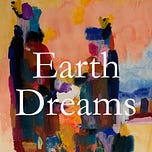




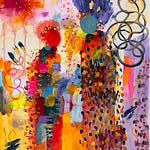

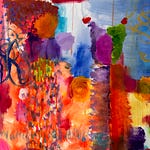
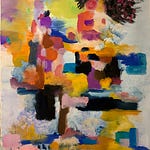
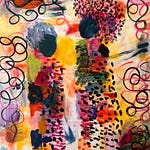
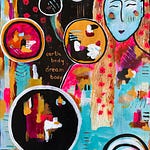
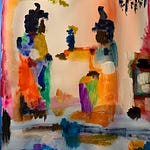
Share this post